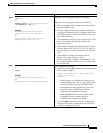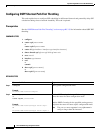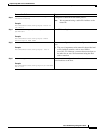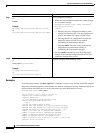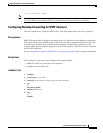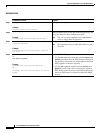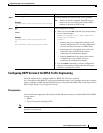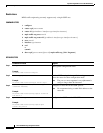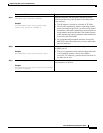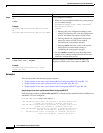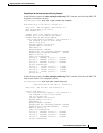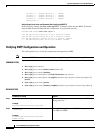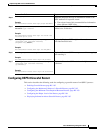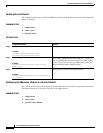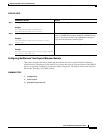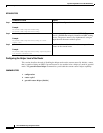
Implementing OSPF on Cisco IOS XR Software
How to Implement OSPF on Cisco IOS XR Software
RC-177
Cisco IOS XR Routing Configuration Guide
Step 5
mpls traffic-eng router-id {
ip-address
|
interface-type interface-instance
}
Example:
RP/0/RP0/CPU0:router(config-ospf)# mpls
traffic-eng router-id loopback 0
(Optional) Specifies that the traffic engineering router
identifier for the node is the IP address associated with a
given interface.
• This IP address is flooded to all nodes in TE LSAs.
• For all traffic engineering tunnels originating at other
nodes and ending at this node, you must set the tunnel
destination to the traffic engineering router identifier of
the destination node because that is the address that the
traffic engineering topology database at the tunnel head
uses for its path calculation.
• We recommend that loopback interfaces be used for
MPLS TE router ID because they are more stable than
physical interfaces.
Step 6
area
area-id
Example:
RP/0/RP0/CPU0:router(config-ospf)# area 0
Enters area configuration mode and configures an area for
the OSPF process.
• The area-id argument can be entered in dotted-decimal
or IPv4 address notation, such as area 1000 or
area 0.0.3.232. However, you must choose one form or
the other for an area.
Step 7
interface
type instance
Example:
RP/0/RP0/CPU0:router(config-ospf-ar)# interface
interface loopback0
Enters interface configuration mode and associates one or
more interfaces to the area.
Command or Action Purpose



